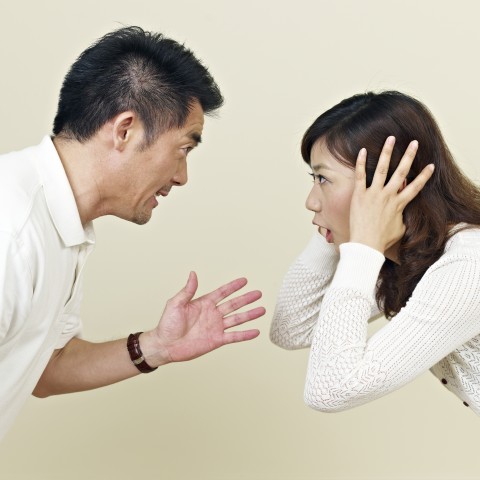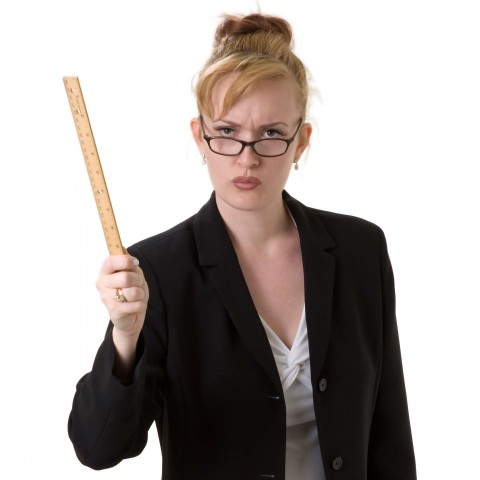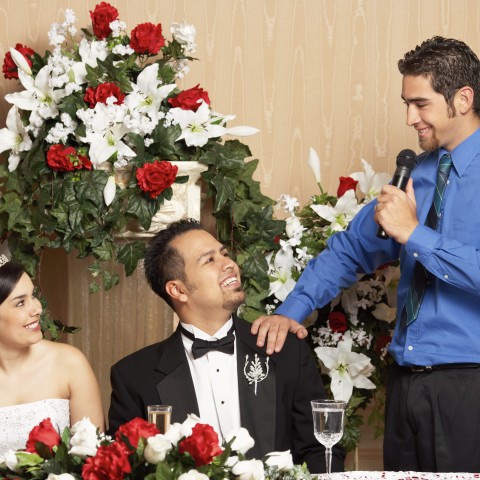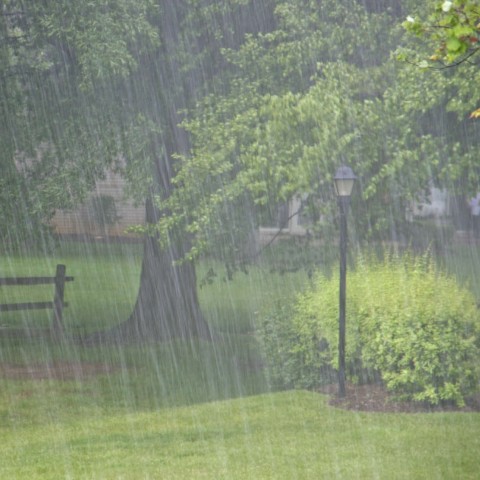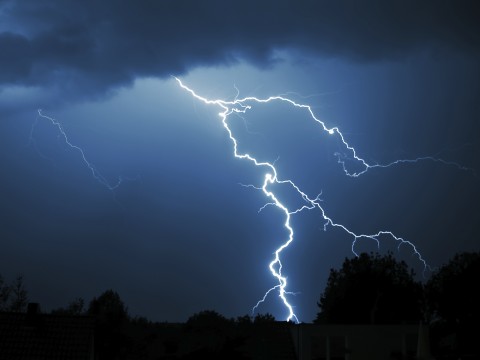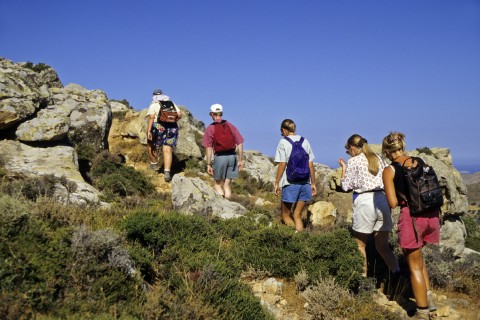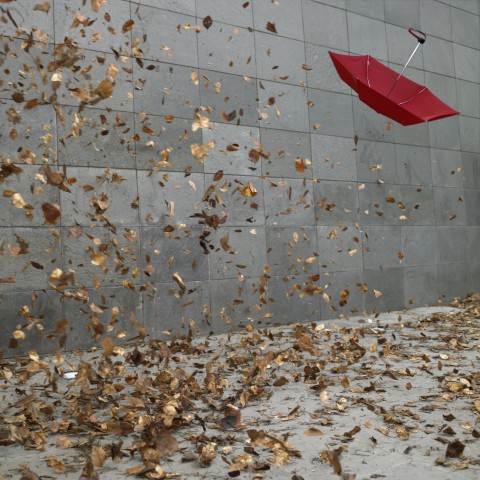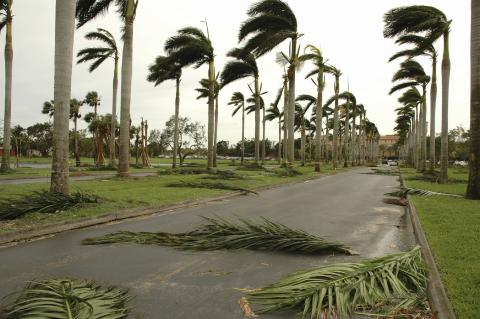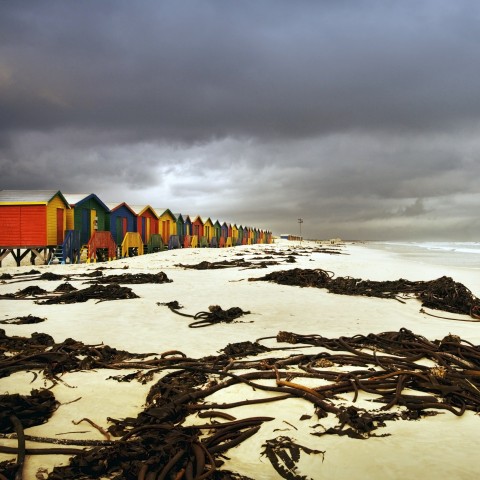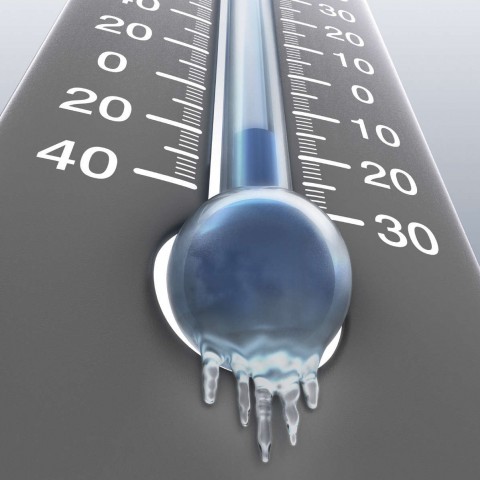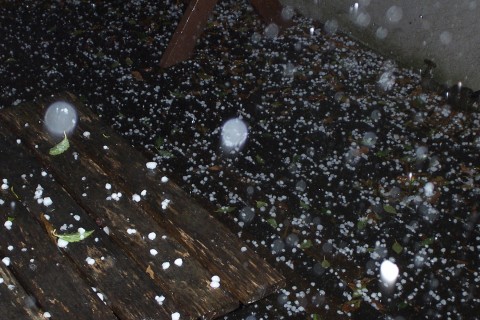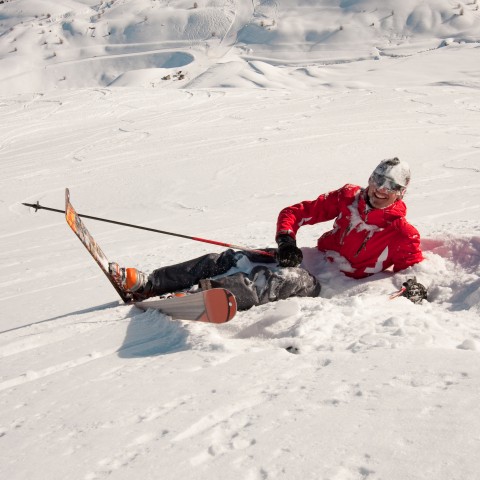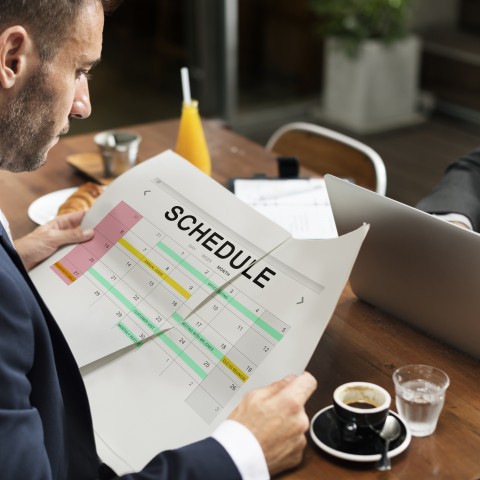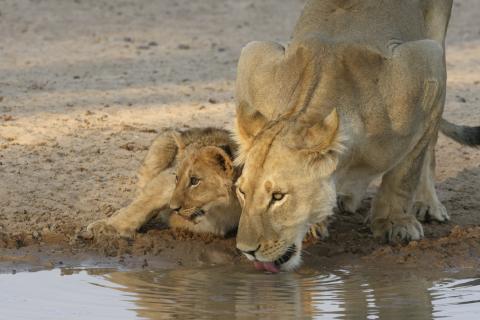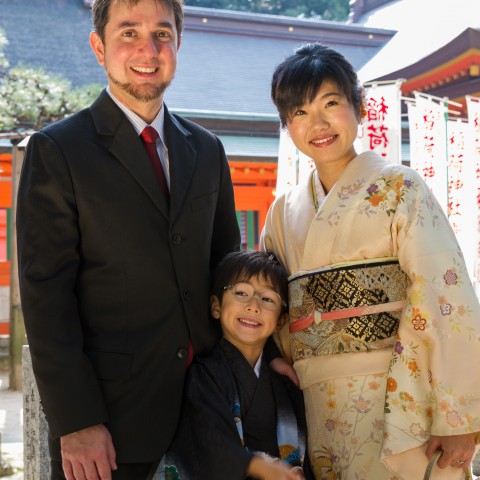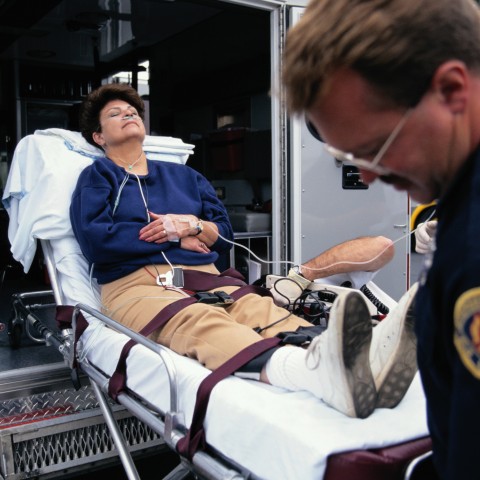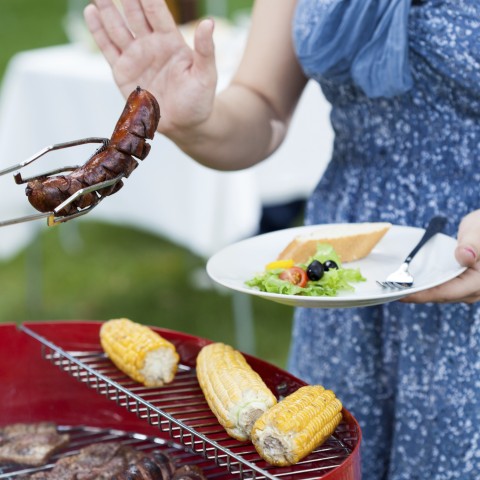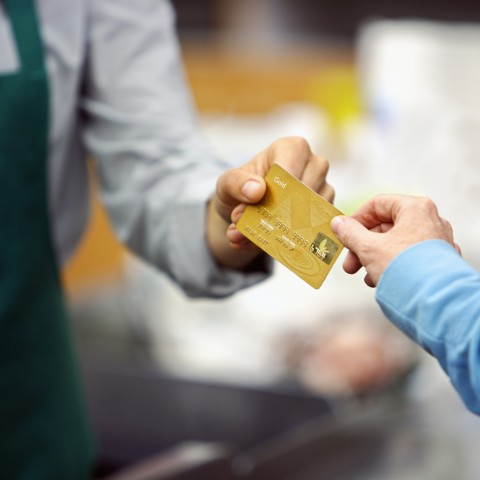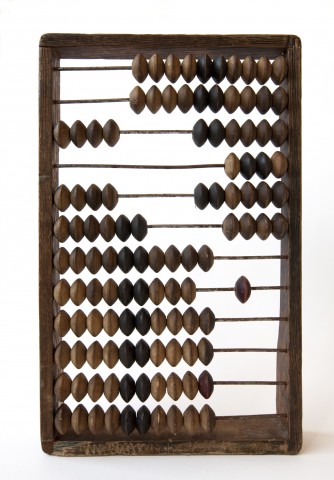
You’re learning to speak Czech, and it’s going well. Your confidence is growing! So much so that you feel ready to share your experiences on social media—in Czech.
At Learn Czech, we make this easy for you to get it right the first time. Post like a boss with these phrases and guidelines, and get to practice your Czech in the process.

1. Talking about Your Restaurant Visit in Czech
Eating out is fun, and often an experience you’d like to share. Take a pic, and start a conversation on social media in Czech. Your friend will be amazed by your language skills…and perhaps your taste in restaurants!
Libor plans to eat at a restaurant with his friends, posts an image of the food, and leaves this comment:

POST
Let’s break down Libor’s post.
Pojďme se někam najíst. Není nad to dobře se navečeřet!
“Let’s go out to eat somewhere. There is nothing better than a good dinner!”
1- Pojďme se někam najíst.
First is an expression meaning “Let’s go out to eat somewhere.”
The first expression is a very common way to make an offer to somebody for something. In this particular situation, the speaker suggests that the group goes out and eat together, which is definitely a frequent and desirable expression in everyday life.
2- Není nad to dobře se navečeřet!
Then comes the phrase – “There is nothing better than a good dinner!.”
The first two words literally mean “there is nothing above.” This phrase is often used in daily conversation to emphasize how great something is.
COMMENTS
In response, Libor’s friends leave some comments.
1- Už se mi sbíhají sliny.
His college friend, Jirka, uses an expression meaning – “That’s mouth watering.”
Use this expression as a positive opinion about the food in the picture.
2- Ale to vypadá báječně!
His supervisor, Luboš, uses an expression meaning – “It looks delicious!”
This is another, more traditional way to give an opinion about the food.
3- Dáme si do nosu!
His girlfriend’s high school friend, Věra, uses an expression meaning – “Let’s have a blast!”
Use this expression to strongly agree with the poster’s suggestion.
4- Pěknou zábavu.
His neighbor, Petra, uses an expression meaning – “Have a good time.”
This is a well-wish, most likely from someone who will not be joining the party.
VOCABULARY
Find below the key vocabulary for this lesson:
navečeřet se: “to have dinner”
sbíhají sliny: “mouth-watering”
báječně: “delicious”
dát si: “to have”
zábava: “fun”
najíst: “to eat”
někam: “somewhere”
vypadat: “to look like”
So, let’s practice a bit. If a friend posted something about having dinner with friends, which phrase would you use?
Now go visit a Czech restaurant, and wow the staff with your language skills!
2. Post about Your Mall Visit in Czech
Another super topic for social media is shopping—everybody does it, most everybody loves it, and your friends on social media are probably curious about your shopping sprees! Share these Czech phrases in posts when you visit a mall.
Jana shop with her sister at the mall, posts an image of the two of them, and leaves this comment:

POST
Let’s break down Jana’s post.
Potřebuji relax. Jde se nakupovat.
“I need to relax. Let’s go shopping.”
1- Potřebuji relax.
First is an expression meaning “I need to relax.”
This expression is often used when somebody wants to express that they are really tired and need a break.
2- Jde se nakupovat.
Then comes the phrase – “Let’s go shopping.”
The first two words literally mean “It goes itself” in third person singular, but the meaning of this expression corresponds with the English phrase “Let’s go.”
COMMENTS
In response, Jana’s friends leave some comments.
1- Nemáme peněz nazbyt.
Her boyfriend, Libor, uses an expression meaning – “We don’t have money to spend”.
Use this expression if you feel anxious about the budget for shopping, or if you want to joke a bit with the poster.
2- Můžu jít s tebou?
Her college friend, Jirka, uses an expression meaning – “Can I go with you?”
With this question, you’re either serious about joining in the shopping, or it’s a way of saying that you wish you could go with.
3- Rozjeď to Jani.
Her high school friend, Věra, uses an expression meaning – “Bring it on, Jana.”
Use this expression to be humorous and encouraging.
4- Kup si něco pěkného.
Her husband’s high school friend, Dáša, uses an expression meaning – “Buy something nice.”
Use this comment just to be part of the conversation in a casual, friendly manner.
VOCABULARY
Find below the key vocabulary for this lesson:
nakupovat: “to buy”
nemít: “not to have”
moci: “can”
rozjet to: “to bring it on”
pěkný: “nice”
potřebovat: “to need”
něco: “something”
to: “it”
So, if a friend posted something about going shopping, which phrase would you use?
3. Talking about a Sport Day in Czech
Sports events, whether you’re the spectator or the sports person, offer fantastic opportunity for great social media posts. Learn some handy phrases and vocabulary to start a sport-on-the-beach conversation in Czech.
Libor plays with his friends at the beach, posts an image of the team playing, and leaves this comment:

POST
Let’s break down Libor’s post.
Nejlepší pro zdraví je pravidelně sportovat.
“The best thing for your health is to play sports regularly. ”
1- Nejlepší pro zdraví
First is an expression meaning “The best thing for your health .”
The first word is the adjective “best.” Next is the preposition, and the noun for “health.” This expression is often used when speaking about something healthy.
2- je pravidelně sportovat.
Then comes the phrase – “is to play sports regularly”.
The English phrase “to play sports” is expressed in Czech by a verb.
COMMENTS
In response, Libor’s friends leave some comments.
1- Ty máš ale vypracované tělo…
His neighbor, Petra, uses an expression meaning – “What a muscular body you have…”
Use this expression if you wish to give a compliment.
2- Sportem ku zdraví.
His supervisor, Luboš, uses an expression meaning – “Play sports to stay healthy.”
Use this comment if you agree with the post, and simply wish to reiterate.
3- Ve zdravém těle, zdravý duch.
His college friend, Jirka, uses an expression meaning – “Healthy body, healthy mind.”
Another thought that elaborates along the same lines as the poster’s original post.
4- Opatrně, ať tě neklepne pepka.
His girlfriend’s nephew, Radim, uses an expression meaning – “Be careful not to get an infarct.”
Use this expression if you wish to tease the poster with a rather dark warning to not overdo physical activity. An infarct is a heart attack.
VOCABULARY
Find below the key vocabulary for this lesson:
pravidelně: “regularly”
tělo: “body”
zdraví: “health”
duch: “spirit”
opatrně: “carefully”
zdravý : “healthy”
sport: “sport”
ty: “you”
Which phrase would you use if a friend posted something about sports?
But sport is not the only thing you can play! Play some music, and share it on social media.
4. Share a Song on Social Media in Czech
Music is the language of the soul, they say. So, don’t hold back—share what touches your soul with your friends!
Jana shares a song she just heard at a party, posts an image of the artist, and leaves this comment:

POST
Let’s break down Jana’s post.
Tuhle písničku miluji!
“I love this song.”
1- miluji!
First is an expression meaning “I love”.
This word is used to express our passion for somebody or something. Despite the fact that Czech people are more reserved in expressing their feelings than Americans, for example, it is a useful and frequent expression.
2- Tuhle písničku
Then comes the phrase – “this song.”
The last word means “song” in the accusative case. The first word means “this.”
COMMENTS
In response, Jana’s friends leave some comments.
1- To je krása.
Her neighbor, Petra, uses an expression meaning – “That’s beautiful.”
Use this expression when you agree with the poster.
2- Připomíná mi to naše první rande.
Her boyfriend, Libor, uses an expression meaning – “It reminds me of our first date.”
Use this expression if you wish to comment on the evocative nature of the song, and when its meaning is special for you and your girlfriend/special person.
3- Zazpívej nám ji!
Her high school friend, Věra, uses an expression meaning – “Sing it to us!”
Use this expression to be humorous.
4- No to je romantika.
Her boyfriend’s high school friend, Dáša, uses an expression meaning – “Well, that’s romantic.”
Use this expression to comment with a personal opinion regarding the song.
VOCABULARY
Find below the key vocabulary for this lesson:
milovat: “love”
krása: “beauty”
připomínat: “remind “
zazpívat: “to sing”
romantika: “romance”
školní: “school”
písnička: “song”
první: “first”
Which song would you share? And what would you say to a friend who posted something about sharing music or videos?
Now you know how to start a conversation about a song or a video on social media!
5. Czech Social Media Comments about a Concert
Still on the theme of music—visiting live concerts and shows just have to be shared with your friends. Here are some handy phrases and vocab to wow your followers in Czech!
Libor goes to a concert, posts an image of it, and leaves this comment:

POST
Let’s break down Libor’s post.
Pojď, půjdem si zapařit.
“Let’s party!”
1- Pojď
First is an expression meaning “Let’s go.”
A very useful and common expression. It literally means “go!” and is the imperative of the verb “to go”.
2- půjdem si zapařit.
Then comes the phrase – ” we go party!.”
The last word in this expression is a slang term for partying, which includes activities like drinking alcohol or dancing wildly at a concert or disco.
COMMENTS
In response, Libor’s friends leave some comments.
1- Přijďte brzo domů.
His girlfriend, Jana, uses an expression meaning – “Come home early. ”
Use this expression if you wish to tell the poster to do something.
2- To je můj oblíbený zpěvák.
His neighbor, Petra, uses an expression meaning – “He’s my favorite singer.”
Use this expression to share a personal opinion regarding the artist.
3- Zpívá docela dobře.
His college friend, Jirka, uses an expression meaning – “He’s singing quite well.”
This is another way of giving a personal opinion regarding the artist.
4- Ti jedou, co.
His girlfriend’s high school friend, Věra, uses an expression meaning – “They rock, don’t they?”
Use this expression when you agree with the poster.
VOCABULARY
Find below the key vocabulary for this lesson:
jít: “to go “
brzo: “early”
zpěvák: “singer”
dobře: “well”
jet: “to go “
pařit: “to party”
docela: “quite”
oblíbený: “favorite”
If a friend posted something about a concert, which phrase would you use?
6. Talking about an Unfortunate Accident in Czech
Oh dear. You broke something by accident. Use these Czech phrases to start a thread on social media. Or maybe just to let your friends know why you are not contacting them!
Jana accidentally breaks her mobile phone, and leaves this comment:

POST
Let’s break down Jana’s post.
A je po telefonu…
“And the phone is broken…”
1- A je
First is an expression meaning “And”.
The first word is a conjunction that corresponds with the English “and.” Conjunctions connect sentences or words. In this phrase, where “and” is the first word in the sentence, it implies that something happened before the phone was dropped and broke.
2- po telefonu…
Then comes the phrase – “the phone is broken….”
The first word is a preposition that can be translated into English in many ways. But in this phrase, it literally means “over.” So altogether the phrase means “The phone is over.”
COMMENTS
In response, Jana’s friends leave some comments.
1- Můžeš si ho dát spravit.
Her neighbor, Petra, uses an expression meaning – “It can be repaired.”
Use this expression to show you are feeling warmhearted.
2- Určitě bude ještě fungovat.
Her boyfriend’s high school friend, Dáša, uses an expression meaning – “It’ll work, I’m sure.”
Use this expression if you want to be encouraging.
3- Stejně to byl starej krám.
Her college friend, Jirka, uses an expression meaning – “Nevermind. It was an old thing.”
This is a personal opinion you can share about the phone, trivializing the event.
4- Neříkal jsem ti, abys dávala pozor.
Her nephew, Radim, uses an expression meaning – “Didn’t I tell you to be careful?”
Use this expression to partake in the conversation in a lighthearted manner. However, it could come across as pedantic, so be sure that the poster will understand your intent.
VOCABULARY
Find below the key vocabulary for this lesson:
telefon: “phone”
spravit: “to repair”
určitě: “certainly”
starej krám: “old thing”
říkat: “to say”
fungovat: “to work”
pozor: “to be careful”
neříkat: “not to say”
If a friend posted something about having broken something by accident, which phrase would you use?
So, now you know how to discuss an accident in Czech. Well done!
7. Chat about Your Boredom on Social Media in Czech
Sometimes, we’re just bored with how life goes. And to alleviate the boredom, we write about it on social media. Add some excitement to your posts by addressing your friends and followers in Czech!
Libor gets bored at home, and leaves this comment:

POST
Let’s break down Libor’s post.
To je strašná nuda.
“I’m terribly bored.”
1- To je strašná
First is an expression meaning “It is a terrible”.
The adjective that corresponds with the English word “terrible” is used to express a huge quantity of our emotions. It can be used to describe something positive or negative. Most Czech adjectives have different masculine, feminine, or neuter forms. This adjective is in the feminine form.
2- nuda.
Then comes the phrase – “bore..”
When Czech people want to describe something boring, they usually use this noun.
COMMENTS
In response, Libor’s friends leave some comments.
1- Tak ráda bych šla do kina.
His girlfriend, Jana, uses an expression meaning – “I would like to go to the cinema. ”
Use this expression to make a suggestion to the poster.
2- Půjčím ti pěknou knížku.
His neighbor, Petra, uses an expression meaning – “I’ll lend you a nice book.”
Use this expression if you wish to be helpful.
3- Pojď mi pomoct okopávat brambory.
His college friend, Jirka, uses an expression meaning – “Come on, help me (to) harvest potatoes.”
Use this expression if you are feeling frivolous and lighthearted.
4- Zkus, jestli dokážeš levitovat.
His girlfriend’s high school friend, Věra, uses an expression meaning – “Try to see if you can levitate.”
Use this expression if you’re feeling humorous.
VOCABULARY
Find below the key vocabulary for this lesson:
strašná: “terrible”
kino: “cinema”
půjčit: “lend”
bambora: “potato”
jestli: “if”
zkusit: “to try”
levitovat: “levitate”
knížka: “book”
If a friend posted something about being bored, which phrase would you use?
Still bored? Share another feeling and see if you can start a conversation!
8. Exhausted? Share It on Social Media in Czech
Sitting in public transport after work, feeling like chatting online? Well, converse in Czech about how you feel, and let your friends join in!
Jana feels exhausted after a long day at work, posts an image of herself looking tired, and leaves this comment:

POST
Let’s break down Jana’s post.
Už nemůžu. Jsem úplně hotová.
“I’m dying. I’m completely exhausted.”
1- Už nemůžu
First is an expression meaning “I am dying..”
This phrase literally means “I can’t anymore.” Czech people use it to express that they can’t do something specific anymore.
2- Jsem úplně hotová.
Then comes the phrase – “I am completely exhausted.”
This expression, which literally means “to be done,” is a popular phrase for expressing exhaustion. The last word is an adjective in the feminine form.
COMMENTS
In response, Jana’s friends leave some comments.
1- Za chvíli bude večeře.
Her boyfriend, Libor, uses an expression meaning – “Dinner will be ready in a moment.”
Use this expression if you want to be helpful and encouraging.
2- Chvíli si odpočiň.
Her neighbor, Petra, uses an expression meaning – “Rest for a while.”
Make this suggestion to show you are warmhearted and caring.
3- Myslím, že neumíš relaxovat.
Her high school friend, Věra, uses an expression meaning – “You can’t relax, I think.”
Use this expression to comment and make conversation by posting a personal opinion.
4- Nechceš kávu?
Her boyfriend’s high school friend, Dáša, uses an expression meaning – “Do you want some coffee?”
Ask this question if you wish to make the poster an offer that could be helpful.
VOCABULARY
Find below the key vocabulary for this lesson:
úplně: “completely”
večeře: “dinner”
odpočinout si: “to rest”
myslet: “to think”
káva: “coffee”
nechtít: “not to want”
neumět: “cannot”
chvíle: “moment”
If a friend posted something about being exhausted, which phrase would you use?
Now you know how to say you’re exhausted in Czech! Well done.
9. Talking about an Injury in Czech
So life happens, and you manage to hurt yourself during a soccer game. Very Tweet-worthy! Here’s how to do it in Czech.
Libor suffers a painful injury, posts an image of it, and leaves this comment:

POST
Let’s break down Libor’s post.
Zlomil jsem si ruku.
“I broke my arm.”
1- Zlomil jsem si
First is an expression meaning “I broke my.”
Czech verbs are sometimes accompanied by reflexive pronouns, which have a similar meaning to “self.” The phrase literally means “I broke myself…”
2- ruku.
Then comes the phrase – “arm..”
This term originally meant “hand,” but is now used for both “arm” and “hand”. In Czech, a word that means “arm” exists, but it is used rarely and only in official documents. In spoken Czech, it is not used at all.
COMMENTS
In response, Libor’s friends leave some comments.
1- Chudáčku, co se ti stalo?
His girlfriend, Jana, uses an expression meaning – “Oh poor you, what happened?”
Use this expression if you are feeling sympathetic.
2- Ještě žes ji nezlomil mně.
His girlfriend’s high school friend, Věra, uses an expression meaning – “At least you didn’t break mine.”
Use this expression to be lighthearted and humorous.
3- Máš štěstí, že to není noha.
His college friend, Jirka, uses an expression meaning – “You’re lucky that it’s not a leg.”
Comment this phrase if you wish to remind the poster that things could’ve been worse.
4- Za tři týdny ti sundají sádru, vydrž.
His high school friend, Dáša, uses an expression meaning – “Hang in there. They’ll take your cast off in three weeks.”
Use this expression if you wish to be supportive and optimistic in order to cheer up the poster.
VOCABULARY
Find below the key vocabulary for this lesson:
zlomit: “to break”
co: “what”
mně: “me (dativ)”
noha: “leg”
týden: “week”
chudáček: “poor”
sádra: “cast”
ruka: “hand, arm”
If a friend posted something about being injured, which phrase would you use?
We love to share our fortunes and misfortunes; somehow that makes us feel connected to others.
10. Starting a Conversation Feeling Disappointed in Czech
Sometimes things don’t go the way we planned. Share your disappointment about this with your friends!
Jana feels disappointed about today’s weather, posts an image of it, and leaves this comment:

POST
Let’s break down Jana’s post.
Nesnáším, když nám na dovolené prší.
“I hate when it’s raining during my vacation.”
1- Nesnáším, když
First is an expression meaning “I hate when.”
The first word, which means “to hate,” is widely used to express a negative attitude toward something or someone. This negative form Czech verb is considered a strong term. While the positive form of this verb means to “tolerate” or “undergo” something.
2- nám na dovolené prší.
Then comes the phrase – “it is raining during my vacation..”
To express rainy weather, Czech people mostly use the verb that means “to rain.” Rarely is it used as a noun. The Czech language also has an adjective that means “rainy,” but this term is outdated and not used in spoken language.
COMMENTS
In response, Jana’s friends leave some comments.
1- Podle předpovědi mělo být slunečno.
Her boyfriend, Libor, uses an expression meaning – “According to the forecast, it’s supposed to be sunny.”
Use this phrase if you wish to make conversation by sharing something you know.
2- Nám loni na dovolené taky pršelo.
Her neighbor, Petra, uses an expression meaning – “It was also raining during my vacation last year.”
This is another phrase to use to make conversation with personal news.
3- Můžeš si zkusit zpívat v dešti.
Her high school friend, Věra, uses an expression meaning – “You can try singing in the rain.”
Use this expression to be humorous, referring to the old classic by Gene Kelly: “Singin’ in the rain”. It was a movie, with a song titled the same, released in the 1950s.
4- Déšť je dobrý pro úrodu.
Her supervisor, Luboš, uses an expression meaning – “The rain is necessary for a good harvest.”
Use this expression to remind the poster of the positives regarding the weather.
VOCABULARY
Find below the key vocabulary for this lesson:
nesnášet: “to hate”
předpověď: “forecast”
dovolená: “vacation”
zkusit: “to try”
déšť: “rain”
úroda: “harvest”
dobrý: “good”
,,,,,,,,,,,,,,,,,,,,,,,,,,,,,, ,,
pršet: “to rain”
How would you comment in Czech when a friend is disappointed?
Not all posts need to be about a negative feeling, though!
11. Talking about Your Relationship Status in Czech
Don’t just change your relationship status in Settings, talk about it!
Libor changes his status to “In a relationship”, posts an image of him and Jana, and leaves this comment:

POST
Let’s break down Libor’s post.
Toto je má drahá polovička.
“This is my better half.”
1- Toto je
First is an expression meaning “This is.”
The word corresponding with “this” has a different shape in Czech depending on its gender: masculine, feminine, or neuter. In this expression, the speaker introduces his girlfriend. However, it is custom in Czech phraseology to use the neuter form of “this.”
2- má drahá polovička.
Then comes the phrase – “my better half.”
This expression refers to somebody we love.
COMMENTS
In response, Libor’s friends leave some comments.
1- Gratuluji!
His neighbor, Petra, uses an expression meaning – “Congratulations!”
This is the traditional congratulation fitting for this occasion.
2- Ať vám to klape.
His college friend, Jirka, uses an expression meaning – “Good luck.”
Use this expression if you wish to be humorous with sarcasm.
3- No konečně!
His girlfriend’s high school friend, Věra, uses an expression meaning – “Finally!”
Use this expression to indicate that you’ve been expecting the news, and feel positive about it.
4- Bezva!
His high school friend, Dáša, uses an expression meaning – “Great!”
Use this expression to show you are feeling good about the romantic match.
VOCABULARY
Find below the key vocabulary for this lesson:
toto: “this”
gratulovat: “to congratulate”
ať to klape: “good luck”
konečně: “finally”
bezva: “great”
drahá: “dear”
no: “well”
být: “to be”
What would you say in Czech when a friend changes their relationship status?
Being in a good relationship with someone special is good news – don’t be shy to spread it!
12. Post about Getting Married in Czech
Wow, so things got serious, and you’re getting married. Congratulations! Or, your friend is getting married, so talk about this in Czech.
Jana is getting married today, so she leaves this comment:

POST
Let’s break down Jana’s post.
Spolu navždy!
“Together forever.”
1- Spolu
First is an expression meaning “Together.”
This is a frequently used word in Czech that expresses the intention of doing something with another person.
2- navždy!
Then comes the phrase – “forever!.”
A bit dramatic, this word is always suitable for important statements, especially about relationships.
COMMENTS
In response, Jana’s friends leave some comments.
1- Miluji tě!
Her husband, Libor, uses an expression meaning – “I love you.”
Use this expression to express your feelings to your beloved.
2- Tichá voda břehy mele.
Her high school friend, Věra, uses an expression meaning – “Still waters run deep.”
Use this expression if you feel that the poster is secretive or unpredictable, but in a positive way.
3- Jsem úplně dojatá.
Her husband’s high school friend, Dáša, uses an expression meaning – “I’m really moved.”
Use this expression if you are really touched and happy about the news.
4- Přeji vám všechno nejlepší.
Her supervisor, Luboš, uses an expression meaning – “I wish you all the best.”
This is a traditional wish when someone announces news of this kind.
VOCABULARY
Find below the key vocabulary for this lesson:
spolu: “together”
milovat: “to love”
tichá: “quiet”
dojatá: “moved”
nejlepší: “best”
přát: “to wish”
voda: “water”
navždy: “forever”
How would you respond in Czech to a friend’s post about getting married?
For the next topic, fast forward about two to three years into the future after the wedding…
13. Announcing Big News in Czech
Wow, huge stuff has been happening in your life! Announce it in Czech.
Libor finds out he and his wife are going to have their second baby, and leaves this comment:

POST
Let’s break down Libor’s post.
Manželka je zase těhotná.
“My wife is pregnant again.”
1- Manželka je
First is an expression meaning “My wife is.”
The first word means “wife” in Czech. The personal pronoun “my” is usually omitted.
2- zase těhotná.
Then comes the phrase – “pregnant again..”
The latter word, an adjective in the feminine form, is the Czech equivalent of the English word “pregnant.”
COMMENTS
In response, Libor’s friends leave some comments.
1- Taková radostná událost. Blahopřeji.
His neighbor, Petra, uses an expression meaning – “Such a happy event. Congratulations!”
Use this expression if you are happy for the couple, and to congratulate them.
2- Bude to kluk nebo holka?
His wife’s high school friend, Věra, uses an expression meaning – “Will it be a boy or a girl?”
Ask this question to keep the conversation going and if you want to know the baby’s gender.
3- Co to bude tentokrát?
His college friend, Jirka, uses an expression meaning – “What will it be this time?”
This is another way of asking the same as the previous poster about the gender of the baby.
4- Až se narodí, tak to oslavíme, tatíku.
His nephew, Radim, uses an expression meaning – “After it’s born, let’s celebrate, daddy.”
Use this expression if you are happy for the couple and wish to celebrate with the poster.
VOCABULARY
Find below the key vocabulary for this lesson:
těhotná: “pregnant”
událost: “affair”
kluk: “boy”
tentokát: “this time”
narodit se: “to be born”
holka: “girl”
tatík: “daddy”
oslavit: “to celebrate”
Which phrase would you choose when a friend announces their pregnancy on social media?
So, talking about a pregnancy will get you a lot of traction on social media. But wait till you see the responses to babies!
14. Posting Czech Comments about Your Baby
Your bundle of joy is here, and you cannot keep quiet about it! Share your thoughts in Czech.
Jana plays with her baby, posts an image of the little one, and leaves this comment:

POST
Let’s break down Jana’s post.
To je náš chlapeček.
“This is our boy.”
1- To je
First is an expression meaning “This is.”
The first word is a point pronoun; the second word is the verb “to be,” in third person singular.
2- náš chlapeček.
Then comes the phrase – “our boy..”
The first word is the possessive pronoun for “our” in the masculine form. The latter word means “boy” in the diminutive form.
COMMENTS
In response, Jana’s friends leave some comments.
1- Celý tatínek.
Her husband, Libor, uses an expression meaning – “Looks like the father.”
Use this comment to share your opinion, in this case that you think the baby resembles his dad.
2- Gratuluji mamince a tatínkovi.
Her supervisor, Luboš, uses an expression meaning – “Congratulations to momma and papa.”
This is a traditional but casual way to congratulating the parents.
3- Silák po tatínkovi.
Her college friend, Jirka, uses an expression meaning – “He is strong like his father. ”
Another personal opinion about the baby’s appearance.
4- Ten je krásný!
Her husband’s high school friend, Dáša, uses an expression meaning – “Such a handsome boy!”
And another opinion, complimenting the child’s physical appearance.
VOCABULARY
Find below the key vocabulary for this lesson:
náš: “our”
tatínek: “daddy”
gratulovat: “to congratulate”
silák: “strong boy”
krásný: “handsome”
a: “and”
být: “to be”
maminka: “mom”
If your friend is the mother or father, which phrase would you use on social media?
Congratulations, you know the basics of chatting about a baby in Czech! But we’re not done with families yet…
15. Czech Comments about a Family Reunion
Family reunions – some you love, some you hate. Share about it on your feed.
Libor goes to a family gathering, posts an image of the food, and leaves this comment:

POST
Let’s break down Libor’s post.
Koláče naší babičky. Nejlepší na světě.
“Our grandma’s cakes. Best in the world.”
1- Koláče naší babičky.
First is an expression meaning “Our grandma’s cakes..”
This sentence starts with the noun “cake” in plural form; the next two words are the personal pronoun “our” and the noun “grandma” in the genitive case.
2- Nejlepší na světě.
Then comes the phrase – “Best in the world..”
The first word means the same as “the best.” The latter words are the preposition and the noun.
COMMENTS
In response, Libor’s friends leave some comments.
1- Vypadají báječně.
His neighbor, Petra, uses an expression meaning – “They look delicious.”
Use this expression to share your thoughts on the food’s appearance.
2- Nedržíš náhodou dietu?
His college friend, Jirka, uses an expression meaning – “Aren’t you on a diet?”
Use this expression to tease the poster.
3- Dostávám na ně chuť.
His nephew, Radim, uses an expression meaning – “I’m building an appetite for them.”
Use this expression to make conversation and share your feelings about the cakes.
4- Ať neztloustneš!
His wife’s high school friend, Věra, uses an expression meaning – “Don’t get fat!”
Use this expression to be humorous.
VOCABULARY
Find below the key vocabulary for this lesson:
koláč: “cake”
vypadat: “to look like”
dieta: “diet”
chuť: “appetite”
minulý: “last”
ztloustnout: “to get fat”
svět: “world”
babička: “grandma”
Which phrase is your favorite to comment on a friend’s photo about a family reunion?
16. Post about Your Travel Plans in Czech
So, the family are going on holiday. Do you know to post and leave comments in Czech about being at the airport, waiting for a flight?
Jana waits at the airport for her flight, posts an image of it, and leaves this comment:

POST
Let’s break down Jana’s post.
Konečně začíná dovolená!
“The holiday finally starts!”
1- Konečně začíná
First is an expression meaning “finally starts!.”
The latter word means the same as the English verb “to start” in third person singular form.
2- dovolená!
Then comes the phrase – “The holiday.”
This Czech term for “holiday” is derived from the verb meaning “to allow” or “to permit.” People are allowed or permitted to take a day off.
COMMENTS
In response, Jana’s friends leave some comments.
1- Pěkně si ji užijte.
Her neighbor, Petra, uses an expression meaning – “Enjoy it.”
Use this expression to wish the poster well for the holiday.
2- Až přijedeš, musíš mi ukázat fotky.
Her husband’s high school friend, Dáša, uses an expression meaning – “You have to show me photos when you come back.”
Use this expression if you would like to know the details of the holiday afterwards.
3- Ať vám vyjde počasí!
Her supervisor, Luboš, uses an expression meaning – “Hopefully, the weather will turn out fine for you!”
This comment is a way to make conversation with the weather as a topic.
4- Pak mi zavolej, půjdem na kafe.
Her college friend, Jirka, uses an expression meaning – “Call me after you get here. We’ll have some coffee together.”
Use this expression to make conversation, and invite the poster for coffee when they return.
VOCABULARY
Find below the key vocabulary for this lesson:
konečně: “finally”
užít: “to enjoy”
fotka: “photo”
počasí: “weather”
zavolat: “to call”
dovolená: “holiday”
kafe: “coffee”
jít: “to go”
Choose and memorize your best airport phrase in Czech!
Hopefully the rest of the trip is better!
17. Posting about an Interesting Find in Czech
So maybe you’re strolling around at your local market, and find something interesting. Here are some handy Czech phrases!
Libor finds an unusual item at a local market, posts an image of it, and leaves this comment:

POST
Let’s break down Libor’s post.
To je ale rozkošná věcička.
“What a lovely thing.”
1- To je ale
First is an expression meaning “What .”
Literally, this phrase means “it is but.” It’s the Czech equivalent to the conjunction “but” and has a similar meaning to the English word “what.” It expresses that the speaker is admiring something.
2- rozkošná věcička.
Then comes the phrase – “a lovely thing!.”
After the first word, an adjective meaning “lovely,” is the word meaning “thing” in its diminutive form. This construction occurs often in the Czech language.
COMMENTS
In response, Libor’s friends leave some comments.
1- To se mi líbí.
His neighbor, Petra, uses an expression meaning – “I like it.”
Use this expression to share your positive opinion of the find.
2- Takové už máme doma tři.
His wife, Jana, uses an expression meaning – “We already have three like that at home.”
Use this expression to make conversation with personal details.
3- Tohle je taky dobré.
His high school friend, Dáša, uses an expression meaning – “This is also good.”
Use this phrase when you have a photo to share and want to make conversation.
4- To chci taky.
His college friend, Jirka, uses an expression meaning – “I want it too.”
Use this expression to indicate that you like the find.
VOCABULARY
Find below the key vocabulary for this lesson:
rozkošná: “lovely”
líbit se: “to like”
doma: “at home”
dobré: “good”
taky: “also”
tři: “three”
chtít: “to want”
mít: “to have”
Which phrase would you use to comment on a friend’s interesting find?
Perhaps you will even learn the identity of your find! Or perhaps you’re on holiday, and visiting interesting places…
18. Post about a Sightseeing Trip in Czech
Let your friends know what you’re up to in Czech, especially when visiting a remarkable place! Don’t forget the photo.
Jana visits a famous landmark, posts an image of it, and leaves this comment:

POST
Let’s break down Jana’s post.
Konečně jsme tu a stojí to za to.
“We are finally here and it’s worth it.”
1- Konečně jsme tu
First is an expression meaning “We are finally here.”
The structure of this expression is basically the same in English.
2- a stojí to za to.
Then comes the phrase – “and it is worth it..”
This expression is often used in spoken Czech. It literally means that something costs some price, but the price is more than reasonable.
COMMENTS
In response, Jana’s friends leave some comments.
1- To jsou ale panoramata!
Her supervisor, Luboš, uses an expression meaning – “Such a wonderful panorama!”
Use this expression to show you are impressed with the view.
2- To je moc pěkné!
Her husband’s high school friend, Dáša, uses an expression meaning – “It is very nice!”
Use this expression to show you are feeling optimistic about the location.
3- Tam bych taky chtěla.
Her neighbor, Petra, uses an expression meaning – “I’d like to also go there.”
Use this expression to show you are feeling some envy and wish to visit the place too.
4- Proč jste mě nevzali s sebou.
Her high school friend, Věra, uses an expression meaning – “Why didn’t you take me with you?”
Use this expression to pretend you’re feeling excluded. It’s a form of humour to keep a conversation going.
VOCABULARY
Find below the key vocabulary for this lesson:
stát za něco: “worth it”
panoramata: “panorama”
pěkné: “nice”
chtít: “to want”
proč: “why”
nevzít: “not to take”
mě: “me “
moc: “very”
Which phrase would you prefer when a friend posts about a famous landmark?
Share your special places with the world. Or simply post about your relaxing experiences.
19. Post about Relaxing Somewhere in Czech
So you’re doing nothing yet you enjoy that too? Tell your social media friends about it in Czech!
Libor relaxes at a beautiful place, posts an image of it, and leaves this comment:

POST
Let’s break down Libor’s post.
To je pohoda.
“It’s relaxing.”
1- To je
First is an expression meaning “It is.”
This phrase consists of two words. The first one is the personal pronoun “it” and the latter one is the verb “to be” in its third person singular form.
2- pohoda.
Then comes the phrase – “relaxing..”
One of the most common Czech terms, this word can mean “relax,” “peace,” something “comfortable,” etc.
COMMENTS
In response, Libor’s friends leave some comments.
1- Vy si teda užíváte.
His college friend, Jirka, uses an expression meaning – “You seem to be enjoying it. ”
Use this expression to agree with the poster.
2- Pěkně si odpočiněte.
His neighbor, Petra, uses an expression meaning – “Get comfortable.
This is a suggestion that’s simply a way to keep the conversation going.
3- Vy se máte. Tady prší a má musím do práce.
His wife’s high school friend, Věra, uses an expression meaning – “I envy you. It’s raining here and I have to go to work.”
Use this expression to indicate that you’re envious and to share some personal news.
4- To vypadá krásně.
His supervisor, Luboš, uses an expression meaning – “It looks beautiful.”
Use this comment if you think the scenery is beautiful.
VOCABULARY
Find below the key vocabulary for this lesson:
být: “to be”
vy : “you”
odpočinout si: “to get relaxed”
pršet: “to rain”
krásně: “beautifully”
práce: “work”
do: “to”
muset: “must”
Which phrase would you use to comment on a friend’s feed?
The break was great, but now it’s time to return home.
20. What to Say in Czech When You’re Home Again
And you’re back! What will you share with friends and followers?
Jana returns home after a vacation, and leaves this comment:

POST
Let’s break down Jana’s post.
Konečně doma.
“Finally home.”
1- Konečně
First is an expression meaning “Finally.”
This word often stands at the beginning of a Czech sentence, especially when the speaker uses expressive language.
2- doma.
Then comes the phrase – “home..”
This Czech word is derived from the word “house,” and there is in fact only a slight difference between them.
COMMENTS
In response, Jana’s friends leave some comments.
1- Jak jste se měli?
Her neighbor, Petra, uses an expression meaning – “How was it?”
Ask this question if you wish to get more information.
2- Zpátky do reality.
Her high school friend, Věra, uses an expression meaning – “Back to reality.”
Use this expression to keep the conversation going with a personal observation.
3- Vítejte zpátky.
Her supervisor, Luboš, uses an expression meaning – “Welcome back.”
This is a traditional way to welcome someone back after travels.
4- Už víte, kam pojedete příště?
Her husband’s high school friend, Dáša, uses an expression meaning – “Do you know where to go next?”
Ask this question to be part of the conversation and to know more details.
VOCABULARY
Find below the key vocabulary for this lesson:
doma: “at home”
jak: “how”
zpátky: “back”
vítat: “to welcome”
příště: “next”
kam: “where”
vědět: “to know”
realita: “reality”
How would you welcome a friend back from a trip?
What do you post on social media during a religious holiday, such as Easter?
21. It’s Time to Celebrate in Czech
It’s a religious holiday and you wish to post something about it on social media. What would you say?
Libor and his family plan to observe a traditional Easter, and leaves this comment:

POST
Let’s break down Libor’s post.
Jde se na mrskut.
“We are going to Easter whip.”
1- Jde se
First is an expression meaning “We are going.”
In this Czech phrase, the word “to go” is used in its third person singular form, literally meaning “it goes.” But when using this phrase, we say that we are going somewhere, or we encourage somebody to go with us.
2- na mrskut.
Then comes the phrase – “to Easter’s whip..”
Easter’s whip refers to a unique and rather odd Czech Easter tradition: boys equipped with whips made from young willow branches visit girls’ houses and gently beat them on their back sides to preserve their beauty and health. Men are given nicely colored eggs for doing this.
COMMENTS
In response, Libor’s friends leave some comments.
1- Pěkně všechny vymrskejte.
His supervisor, Luboš, uses an expression meaning – “Whip all of them properly.”
This is a traditional response.
2- To aby si dala do kalhot polštář.
His wife’s high school friend, Věra, uses an expression meaning – “Better put a pillow in my trousers.”
Use this expression to be humorous.
3- Stavte se taky u nás.
His neighbor, Petra, uses an expression meaning – “Come by.”
Use this expression to be inviting.
4- Schválně, kdo dostane víc vajec.
His college friend, Jirka, uses an expression meaning – “Let’s see who will get more Easter eggs.”
Use this expression to show you are feeling frivolous and want to partake in the conversation.
VOCABULARY
Find below the key vocabulary for this lesson:
mrskut: “whip”
vymrskat: “to whip”
kalhoty: “trousers”
stavit se: “come by”
dostat: “to get “
víc: “more”
vajíčko: “egg”
polštář: “pillow”
If a friend posted something about a holiday, which phrase would you use?
Easter and other religious holidays are not the only special ones to remember!
22. Posting about a Birthday on Social Media in Czech
Your friend or you are celebrating your birthday in an unexpected way. Be sure to share this on social media!
Jana goes to her birthday party, posts an image of it, and leaves this comment:

POST
Let’s break down Jana’s post.
Děkuji moc všem za tak krásné překvapení.
“Thank you all for such a wonderful surprise.”
1- Děkuji moc všem
First is an expression meaning “Thank you all.”
The first word is the verb that corresponds with the English word “to thank.” In this sentence it is used in its first person singular form. The ending of this Czech verb is different according to its conjugation.
2- za tak krásné překvapení.
Then comes the phrase – “for such a wonderful surprise..”
The last word of this phrase corresponds with the English term “surprise.” The previous word is the adjective taking its neuter form in accordance with the noun.
COMMENTS
In response, Jana’s friends leave some comments.
1- Všechno nejlepší k narozeninám!
Her neighbor, Petra, uses an expression meaning – “Happy birthday!”
This is a traditional birthday wish.
2- Dnes je tvůj velký den!
Her high school friend, Věra, uses an expression meaning – “Today is your great day!”
Use this comment to keep the conversation going.
3- Hodně zdraví a štěstí.
Her husband, Libor, uses an expression meaning – “Good luck and health.”
This is another fairly traditional birthday wish.
4- Kolik ti je?
Her college friend, Jirka, uses an expression meaning – “How old are you?”
Ask this question if you want more personal detail about the poster’s birthday.
VOCABULARY
Find below the key vocabulary for this lesson:
všichni: “everybody “
narozeniny: “birthday”
dnes: “today”
štěstí: “luck”
je: “is”
den: “day”
velký: “great”
překvapení: “surprise”
If a friend posted something about birthday greetings, which phrase would you use?
23. Talking about New Year on Social Media in Czech
Impress your friends with your Czech New Year’s wishes this year. Learn the phrases easily!
Libor celebrates the New Year, posts an image of it, and leaves this comment:

POST
Let’s break down Libor’s post.
Šťastný Nový rok!
“Happy New Year!”
1- Šťastný
First is an expression meaning “Happy.”
This adjective is a staple of the most common Czech New Year’s greeting.
2- Nový rok!
Then comes the phrase – “New Year!.”
This phrase, which usually starts with a capital letter, is the Czech equivalent of the word “new.”
COMMENTS
In response, Libor’s friends leave some comments.
1- Vám také! Ať se daří.
His neighbor, Petra, uses an expression meaning – “And to you too! All the best.”
This is the appropriate, traditional response to the poster’s New Year’s wish.
2- Nelučte se se starým rokem střízliví.
His college friend, Jirka, uses an expression meaning – “Don’t say goodbye to the previous year sober.”
Use this expression to be humorous and to advise the poster to have a good time leaving the past behind.
3- Všechno nejlepší do nového roku.
His high school friend, Dáša, uses an expression meaning – “All the best in the new year.”
This is another positive, traditional New Year’s wish.
4- Ať lítají rychlé špunty!
His wife’s high school friend, Věra, uses an expression meaning – “Let the corks fly!”
This is another way of saying: “Let’s party!”
VOCABULARY
Find below the key vocabulary for this lesson:
šťastný: “happy”
také: “also”
loučit se: “to say goodbye “
nejlepší: “the best”
špunt: “cork”
lítat: “to fly”
nový: “new”
starý: “old”
Which is your favorite phrase to post on social media during New Year?
But before New Year’s Day comes another important day…
24. What to Post on Christmas Day in Czech
What will you say in Czech about Christmas?
Jana celebrates Christmas with her family, posts an image of it, and leaves this comment:

POST
Let’s break down Jana’s post.
Pěkné prožití svátků vánočních.
“Merry Christmas to you all.”
1- Pěkné prožití
First is an expression meaning “Nice experience.”
This is the beginning of the second most common Christmas greeting. It literally means “nice living through” the Christmas.
2- svátků vánočních.
Then comes the phrase – “Christmas..”
The second part of this formal greeting literally means “Christmas holidays.”
COMMENTS
In response, Jana’s friends leave some comments.
1- To bude dárků!
Her high school friend, Věra, uses an expression meaning – “Looking forward to the gifts!”
Use this expression to comment on the gifts, which is part of Christmas traditions in many cultures.
2- Už máte nastrojený stromeček?
Her college friend, Jirka, uses an expression meaning – “Did you already prepare the Christmas tree?”
Ask this question to keep the conversation going, and to find out more details.
3- Veselé vánoce!
Her supervisor, Luboš, uses an expression meaning – “Merry Christmas!”
This is the common response to the poster’s Christmas blessing.
4- Právě smažím kapra.
Her husband’s high school friend, Dáša, uses an expression meaning – “I’m just frying the carp.”
Carp is a traditional Christmas dish, so this comment relates to the Christmas dinner.
VOCABULARY
Find below the key vocabulary for this lesson:
svátky vánoční: “Christmas holidays”
dárek: “gift”
stromeček: “Christmas tree”
veselé: “merry”
kapr: “carp”
smažit: “to fry”
právě: “just”
vánoce: “Christmas”
If a friend posted something about Christmas greetings, which phrase would you use?
So, the festive season is over! Yet, there will always be other days, besides a birthday, to wish someone well.
25. Post about Your Anniversary in Czech
Some things deserve to be celebrated, like wedding anniversaries. Learn which Czech phrases are meaningful and best suited for this purpose!
Libor celebrates his wedding anniversary with his wife, posts an image of him and Jana, and leaves this comment:

POST
Let’s break down Libor’s post.
Dneska máme výročí. Díky za všechno miláčku.
“We have an anniversary today. Thank you for everything, darling.”
1- Dneska máme výročí.
First is an expression meaning “We have an anniversary today..”
The first word means “today.” The second word is the verb “to have” in the first person plural form. And the last word means “anniversary.”
2- Díky za všechno miláčku.
Then comes the phrase – “Thanks for everything, darling..”
The first word in this expression is a noun that means the same as the English word “thanks” and is used in informal spoken language. Formal Czech prefer to use the verb form, which corresponds to the English verb “to thank.”
COMMENTS
In response, Libor’s friends leave some comments.
1- To jsi mě dojal.
His wife, Jana, uses an expression meaning – “Your message is very touching.”
Use this expression to say that you really like your husband’s post.
2- Gratuluji a přeji hodně dalších společných let.
His neighbor, Petra, uses an expression meaning – “Congratulations. I wish you many years together.”
This is a warmhearted wish for a happy marriage, as well as a traditional congratulation.
3- Děti, polibte se.
His college friend, Jirka, uses an expression meaning – “Kiss each other, darlings.”
This is a frivolous comment, using a term of endearment.
4- Deset let spolu. Krásné!
His supervisor, Luboš, uses an expression meaning – “Ten years together. Wonderful!”
This is a comment on the length of the marriage.
VOCABULARY
Find below the key vocabulary for this lesson:
výročí: “anniversary”
dojmout: “to touch”
přát: “to wish”
políbit : “to kiss”
deset: “ten”
spolu: “together”
hodně: “many”
léta: “years”
If a friend posted something about Anniversary greetings, which phrase would you use?
Conclusion
Learning to speak a new language will always be easier once you know key phrases that everybody uses. These would include commonly used expressions for congratulations and best wishes, etc.
Master these in fun ways with Learn Czech! We offer a variety of tools to individualize your learning experience, including using cell phone apps, audiobooks, iBooks and many more. Never wonder again what to say on social media!








